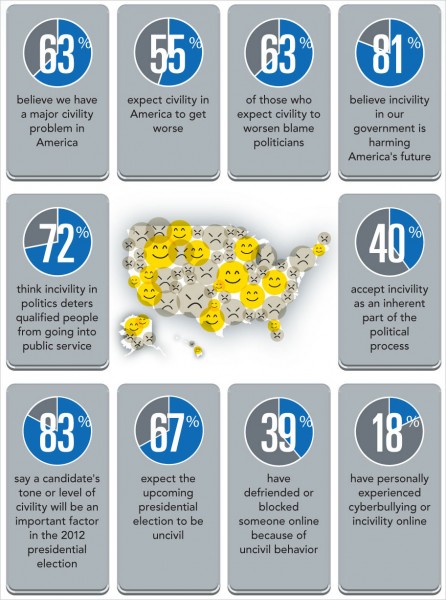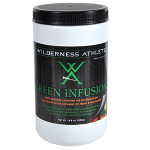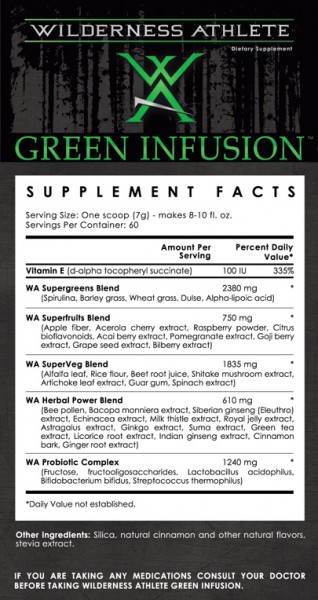Society is a breeding ground for incivility. Or is it simply your choice to manifest it?
Lifestyles are determined by habit. One of the most insidious aspects of habit is its ability to dull awareness.
In the study “Thought on Incivility: Student and Faculty Perceptions of Uncivil Behavior in Nursing Education,” the authors address the problem by recognizing upfront . . . “that incivility on American college campuses is a serious and growing concern.” Possible causes are ranked by frequency of responses; leading the way, a high-stress environment, arrogance, lack of respect and faculty credibility. This article identifies and offers suggestions for a cure for these key components to the incivility tsunami overrunning every institution and business in America. (Cynthia M. Clark and Pamela J. Springer, March/April 2007 Vol. 28 No. 2 pg 93-97 National League for Nursing)
The focus of wellness is its integrative approach to the whole person. We must remain mindful of the consequences of our lifestyle choices. Our decisions impact the lives of others; whether we are aware of it is the key.
Personal growth has no end point. Risk is inherent to making long-term cognitive and behavioral changes to achieve optimum wellness—it represents the catalyst for growth. It is human nature to fear change. Optimum wellness is about accountability. You define the value of your health.

“Let us have faith that right makes might, and in that faith, let us, to the end, dare to do our duty as we understand it.” (photo courtesy www.richardrbecker.com)
“Every act or threat of workplace violence—from the stark horror of a mass killing to the disruption of a ‘false alarm’—engenders a series of critical decisions (pg. xii). In an insurance industry survey one out of four workers reported being harassed, threatened or physically attacked on the job in the previous 12 months (pg 3-4). . . . Geneva-based International Labor Organization concluded in 1998 that workplace violence was a planet-wide phenomenon” (pg 5 The Violence-Prone Workplace: A New Approach to Dealing with Hostile, Threatening, and Uncivil Behavior by Richard V. Denenberg, Mark Braverman 1999, Cornell University Press).
Incivility is an unhealthy approach to life, which likely explains its popularity. Our society is fraught with excuses justifying said behavior whether it occurs in traffic, at the workplace, or at home.
To become trapped in the drama of hustle-and-bustle, the futility of multi-tasking, the lure of instant gratification, split-second decisions and the rest of it, is a matter of choice. These are egocentric choices built on a foundation of excuses and fear-based illusions.
The importance of enjoying your livelihood cannot be overstated. Time is non-renewable. Remember this when you consider the amount of time you spend related to your workplace.
“A [person] has no more right to say an uncivil thing, than to act one; no more right to say a rude thing to another, than to knock him down.” Johnson (Great Books Online, Bartleby.com)
The bottom line: Each of us must take responsibility for every thought, feeling, action, and result in our life in order to live an authentic life. The victim mentality, though pervasive, is merely an excuse.
If your work feels like drudgery remember: you chose it. You can either tolerate it or change it. Disdain for your livelihood mixed with poor dietary habits fester volatility from the inside out. Workplace absenteeism rates in excess of 35 percent underscore the high cost of doing business and ROI disparities.
This is profoundly evident in the sphere of nutritive decisions. The consequences of habitually poor dietary choices have led us on a path of self-destruction. Incivility is an egocentric and lonesome by-product of mindless living.
 In an article “Fun Facts About Krispy Kreme Doughnuts” (Amy Brantley, Yahoo, Aug 9, 2007) a startling discovery: in 12 months, the company produced 2.7 billion of “this delicious fried treat” and that is only in North America. Each doughnut produces nearly 70 percent of its calories from fat; each contains 11g of sugars.
In an article “Fun Facts About Krispy Kreme Doughnuts” (Amy Brantley, Yahoo, Aug 9, 2007) a startling discovery: in 12 months, the company produced 2.7 billion of “this delicious fried treat” and that is only in North America. Each doughnut produces nearly 70 percent of its calories from fat; each contains 11g of sugars.
To thrive on the wellness continuum requires authenticity. Consuming foods which you are biologically adapted to eat is paramount to vibrant health and effervescent living.
Nutrition is the cornerstone of all dimensions of wellness. Primary source nutrition has the profound and vastly underestimated ability to maintain health, prevent and reverse chronic and degenerative diseases, and enhance endurance sports performance.
Mindful nutritive habits have a profound impact on your life. Most people fail to see the connection among nutrition, fitness, health, and wellness until they no longer have an option to make it a priority. Awareness of the interconnectedness of seemingly disparate elements is the key to mindful living.
“If once a [person] indulges in murder, very soon he comes to think little of robbing; and from robbing he comes next to drink and sabbath-breaking, and from that to incivility and procrastination.” Johnny Depp “On Murder Considered as One of the Fine Arts” Blackwood’s Magazine.
Lifestyle changes must be linked to one’s definition of or a quest for meaning in life. Aimlessly succumbing to the latest fads often leads to disappointment. Viewing and living your life from the inside out will provide a refreshing perspective on reality.
Nutritional stress is defined as stress created by food because of its unhealthy properties. Nutritional stress is pervasive even among endurance athletes. Nutritional stress accounts for at least 70 percent of the uncomplimentary stress in our lives. Nutritional stress is the root of chronic and degenerative diseases. Uncomplimentary stress is anxiety that fails to produce any benefit.
Health-Alicious-ness.com wrote in their “Top 10 Foods Highest in Calories” that salad dressings are “Usually packed with the fats and oils that top this list . . . Other high calorie dressings include Caesar, Ranch, and Blue Cheese.” The Food Channel published the “Top Ten Most Popular Salad Dressing Flavors” (by Cari Martens revealing Caesar is No. 3, Ranch is No. 1 while Bleu Cheese is No. 5. What this means is the worst dressings for us are the most highly preferred.

“Is not general incivility the very essence of love?” Thank you, Jane Austen (watercolor by James Andrew)
Nobody can afford to compromise when it comes to nutrition. You are doing your remarkable body a disservice when you choose to fuel it with high calorie, low-nutrient foods out of convenience or any other excuse. The impact of your dietary choices on personal and planetary health is unequivocal.
The Pleasure Trap
Your body is only as proficient as its weakest link. It performs on par with the nutrient density of the food it consumes. Food manufacturers add chemicals to its products with your addiction to these goods the primary intention. This echoes the use of nicotine to enhance the taste of cigarettes. The chemicals are oil, sugar and salt. In the spirit of overindulgence the plan works flawlessly.
The hidden element that sabotages healthy habits is the artificial stimulation of a neurochemical in your brain called dopamine. Products laced with oil, sugar and salt release opiates in the brain that provide the feeling of pleasure or satisfaction. Since humans tend to seek pleasure and avoid pain we become easy targets. Food manufacturers conspire to make certain that you remain stuck in its assorted pleasure traps.
Am I uncivil because a manager said something I deemed condescending, or because I skipped breakfast (“Who has the time?”) after eating a bag of cheese puffs and every bite of a three-piece deep-fried chicken for dinner (“I always order the super crusty.”)
Addiction to food is a biological and psychological issue. It is clear the food manufacturers are ahead of the curve when it comes to satisfying the taste receptors [saltiness and sweetness] under the tip of your tongue. Hormones such as grehlin, leptin, peptide YY impact dopamine—the neurotransmitter in the brain—and create metabolic flux. The receptors under the tongue crave saltiness, sweetness, bitterness, and incite nutritional mayhem.

Incivility survey: We see this uncivil behavior all around us! www.tlnt.com
Grehlin is termed the “hunger hormone.” It is produced by the stomach and signals your brain to consume food. It stimulates dopamine, a pleasure-seeking neurotransmitter, to crave denatured, high-calorie foods promoting fat.
Grehlin reduces metabolic activity – particularly fat. Grehlin is secreted in 30-minute intervals and decreases once food reaches your intestines. Regular exercise will control grehlin levels and mitigate impulsive dietary behavior.
The idea of rankism, where those above us use “arrogance and abuse of power” in cruel ways, is a key contributor to incivility according to Cynthia Clark’s article “Student perspectives on faculty incivility in nursing education: An application of the concept of rankism.” This dual PhD and RN Professor at Boise State University is particularly qualified to dissect the problem and increase understanding. Carried in the January-February 2008 edition of Nursing Outlook (pages 4-8,) the conclusions aid “understanding how rankism impacts nursing education . . . developing preventative strategies, [improving] relationships between students and faculty.” There is no real stretch to carry this challenge in the nursing profession throughout the broader scope of every other business and job on the globe.
Peptide YY hormone (peptide tyrosine tyrosine) is secreted by the neuroendocrine cells in the ileum and colon to induce satiety by dissipating gastric emptying to increase digestive efficiency and nutrient absorption. It increases water and electrolyte absorption in the colon while inhibiting gastrointestinal motility.
Dopamine controls the brain’s pleasure and reward mechanisms. It is released by the hypothalamus. Dietary choices are governed more by culture and less by instinct. There is a substantial link between cravings and brain neurotransmitter interaction–specifically, low dopamine levels. Low dopamine levels induce stress, agitation, irritability, and elevated cortisol levels.
Leptin is secreted by fat cells. Your appetite diminishes upon consumption of low-calorie, nutrient-dense foods. Leptin promotes metabolic activity. Leptin is an adipose-induced hormone regulating appetite and hunger, energy intake and expenditure, metabolism and behavior.

Jennifer Chaudoir demonstrates with a win at Minocqua, Wisc, the benefits of good nutrition and snowshoeing fun
Our brains sense the value of foods we consume. The hunger mechanism will naturally subside upon satiety. Consuming foods which we are biologically adapted to eat will propel satiety due to its nutrient-dense nature. The consumption of whole, unrefined, nutrient-dense, primary source foods will alleviate the need for portion control.
Minnesota’s Truck Driver of the Year, Milt Lowe, hammers home the challenges he faces now vs. when he started in 1969. “The equipment today is better, but the stress level is higher . . . Nobody has any patience. And people are less courteous. The younger generation is worse. I get a one-finger salute once in a while. I just keep my cool, and let them have their fun. I may get a little frustrated, but I don’t get angry.” Lowe, now 72, has driven over 3.5 million miles (!) without an accident or traffic violation. (Star Tribune “A trucker’s look at life on the road” 02.16.2014 pg D3 by Neal St. Anthony)
The satiety mechanism is dependent on two types of stretch receptors in our mouths and our stomachs. The key is being cognizant when we are truly hungry and truly satiated. Caloric-dense, nutrient-deficient foods provide more stress than our digestive systems are designed to handle. Processed and refined foods are concentrated and offer empty calories in exchange for vital nutrients.
This is a losing proposition. Denatured foods provide a clear path to overindulgence and must be eliminated from your diet to maximize nutrient value for low caloric intake.
Approximately 71.4 percent of Americans ingest more sugar than the recommended maximum of 10 percent of daily calories. The ideal number of calories from sugar per day is roughly less than one can of pop. Potential heart problems accelerate for 1-in-10 who tally a quarter of their daily calories from sugar. Heart disease kills more than one person, every minute, every day, in the USA (Star Tribune “Sugar” 02.16.2014, pg SH1). The conclusion? Vending machines are unintentionally killing us.
Consumption of primary source foods will stretch the stomach receptors and provide a feeling of satiety due to high micronutrient density and low caloric value. Perpetual ingestion of nutrient-deficient foods will induce a stimulating effect. This deceptive energy will incur payment in the form of a crash. Borrowed energy (stimulation) is a poor substitute for nourishment. Constantly climbing higher to reach the same level of stimulation is a losing proposition. The consequences are glaring in daily discourse.
In the book Ultra Superior, I proffered that spending time on trails, whether snow or dirt, sandy or rocky, increases happiness, reduces tensions and generally enhances life itself. I described where in a competitive event in the woods, the leaders, middlings, and the rest of us are typically encouraging and nice. On and out-and-back layout the front-runners are as likely to give an enthusiastic “good job!” as they speed by going in as those in less intense positions. The conclusion? Spend more time on trails in winter and summer, spring and fall. Leave the tensions of life at the trailhead.
This is termed “The Pleasure Trap.” It is a phrase, a condition, coined by Dr. Douglas Lisle, Director of Research, at California-based TrueNorth Health Center. Said trap has snared billions of people and is the chief culprit for millions of needless deaths annually due to poor dietary choices and a sedentary lifestyle.
Sleep deprivation is a factor in how these hormones function. Quality sleep means spending time in the Delta Phase each night. This line has become significantly blurred and its impact on productivity and health is tantamount.
Big Pharma and government subsidies to the meat and dairy industry have had an enormous influence on the demise of our health in exchange for profit. The vicious cycle is propelled by TV ads alternating between pimping garbage foods and the medications to alleviate symptoms from consuming those products.
The young woman gives a “hate” look to an older manager, talks harshly about the manager just out of ear-shot, speaks about “not respecting” the person so that gives permission to act in a demeaning fashion. Change managers? The same uncivil behavior continues.
Though the foregoing may represent the facts of the matter; the real truth lies in our ability to make prudent decisions respective to our health, fitness, and wellness. It is clear most of us have a long way to go toward self-efficacy.
“I’d love to get to a farmer’s market for my green vegetables, but who has the time? So I’ll just pull in here to XXX and supersize my fries and order one, no, make it two bacon-fat-ladened-body-fat-cheese-killer-burgers; yes, I’ll take a shake with that.” Ah, yes . . but what if there is a farmer’s market in a container, available on a moment’s notice; think that would help . . . you bet! I consume the equivalent of six (confirming, that’s 6) servings of fruit and veggies in one small scoop of Wilderness Athlete’s Green Infusion. That is a miracle in a small tub holding 60 servings—two month’s worth—for your healthy pleasure; either mix as a drink with a banana and unsweetened Almond Milk, sprinkle on top of soup or mix in your quinoa or other foods. Think of food as what it really is: fuel for your sport and life.
Living a life with vision is vital on the path to optimal wellness. Lifestyle behavior and the level of commitment to health, fitness, and nutrition are linked to one’s level of self-worth spurred by self-talk.
The Power of Choice
It is clear that anyone who eats will benefit from mindful, ethical nutritive decisions. The nutrient-dense, high net-gain, alkaline-forming properties of organic, plant-based, whole foods represent the most comprehensive path to optimal health. Nutritional stress will be minimized only when micronutrient digestion, absorption and assimilation are maximized. Note these benefits:
● Reduced nutritional stress;
● Reduced biological age;
● Increased life expectancy;
● Body fat reduction;
● Nourishment versus stimulation;
● Alkaline pH balanced;
● Improved sleep quality;
● Reduced sleep requirements;
● Improved productivity;
● Salt/sugar cravings eliminated;
● Improved desire to excel;
● Increased energy;
● Better moods;
● Increased muscle tone;
● Reduced cholesterol;
● Improved bone strength;
● Less joint inflammation;
● Hormonal support;
You could fuel your body with addictive, toxic foods that promote nutritional stress, accelerate chronic and degenerative diseases, showcase your miserable state of being, hasten ecological destruction, and take your chances.
The internet and social media “for the first time . . . has risen into the top ranks of perceived causes of incivility.” FOX business, 09.13.2013, by Dr. Woody “The Incivility Crisis in America”
A natural and intuitive approach is to consume high-energy, nutrient-dense, whole, plant foods to support cellular regeneration, vibrant, optimal health and environmental restoration.
As a youngster, I once hiked out to a gas station to fill-up a container of fuel for my dad’s garden tractor. After a while he came looking for me, none too happy; the engine was sputtering and popping and would not run. Instead of gas I had purchased kerosene. Little did I know . . . . Think of your body’s engine and the fuels you stuff in it. Just like kerosene in a gas engine, bad fuels will cause you to pop, snap and crack; let me bite your head off when you say, “Good morning,” snapping, “What’s so good about it?” On the trail bad fuels mean an early out, with comments like this: “Where’s that first aid station so I can drop?”
Keep it simple; pay now for healthy food or pay later to treat the symptoms of chronic and degenerative diseases, ruined relationships, blown business transactions, DNFs, and so forth from incivility due to poor dietary decisions.
Give yourself permission to live a vibrant life by making lasting lifestyle changes…one bite at a time. Gradual progression and consistency are the keys to your mansion of optimal wellness and civility.
As Dirty Harry might have said in the thriller Sudden Impact, “Go ahead; be nice this day.”
contact: Jeff Kildahl, Ph.D | Twitter | Facebook | The Wholistic Edge
Phillip Gary Smith | Twitter | Facebook | iHarmonizing Competition
Jeff Kildahl’s writing is with normal fonts; Phillip Gary Smith’s is italicized.













Leave a Comment